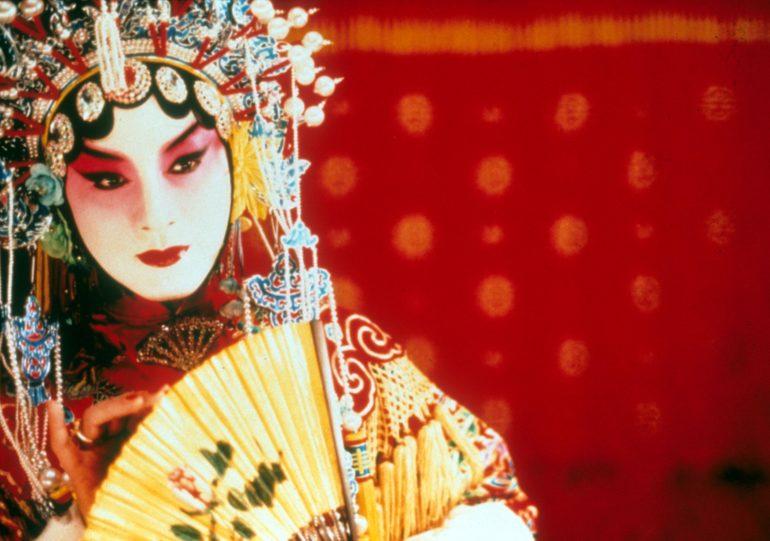Farewell to Concubines: China Tightens Restrictions on Short-Form Videos
By Rebecca Davis
LOS ANGELES (Variety.com) – Bad news for some of China’s 600 million users of short-form video platforms: No more content depicting foot fetishes, spoofs of the national anthem or sympathy for extramarital affairs, according to new regulations. Worse news for the companies that serve such consumers: They’re now expected to step up their censorship efforts and assume responsibility for all “harmful” content that slips through their grasp.
The China Netcasting Services Assn. (CNSA) has released a detailed list of 100 types of video content that platforms must scrub from their sites, and a separate list of specifications for how censorship should be enacted. The association is backed by key government departments such as the country’s top Internet watchdog and the National Radio and Television Administration.
China operates one of the most extensive and sophisticated censorship regimes in the world. Over the past year, authorities have further tightened control over the web, deleting nearly 10,000 social media accounts deemed politically or socially undesirable and revamping the approval system for online games, which has hobbled the multi-billion-dollar industry.
The government is now seeking to rein in the booming short-form video sector. The new regulations issued last week provide a peek at the type of content that gets Chinese censors’ knickers in a twist.
Platforms are to ban any words, images, flags, or other content that express support for the independence of contested territories like Taiwan, Hong Kong, Tibet or Xinjiang. “Messing with or spoofing” the national anthem or singing it in an inappropriate context is also a no-no, as is anything that “ridicules, denies, or attacks major policies” or misinterprets or makes fun of national laws like the constitution.
Dressing up as Communist Party leaders is forbidden. So is sending up historical figures and the leaders of other countries, which could “cause international disputes.” And content that “promotes money worship and hedonism” will be wiped – consistent with the country’s more austere turn in a time of intensive anti-corruption campaigns.
But some of the bans on CNSA’s list are more unusual. No channels are allowed to promote shamanic rituals, voodoo or magic, and there is to be no “advocating for the changing of one’s destiny through witchcraft,” points No. 48 and No. 49 stipulate. Violence, gambling and pornography are banned, but so are “renderings of foot fetishes and nude stockings,” as well as “depictions of sympathy or support for extramarital affairs or one-night stands.” Platforms must also delete material that “promotes and hypes non-mainstream views of love and marriage.”
That last stricture harks back to a previous set of online regulations posted by the same association in 2017, which called for censoring displays of “abnormal sexual behaviors,” including homosexuality. China’s LGBTQ community and its allies were infuriated.
The short-form video industry was worth about $1.7 billion in 2018, up 106% from the year before, the official Xinhua news agency cited the CNSA as saying in late November. Its value is predicted to exceed $44.3 billion by 2020, according to a report from consulting firm iResearch, the Global Times newspaper said. But the new regulations may herald a significant cool-down.
“All content put out on short-form video platforms can only be broadcast after content review, including program titles, synopses, bullet comments, comments, etc.,” the CNSA said, adding that companies should employ at least one censor for every 1,000 videos to manage the work. Compliance will require an enormous, expensive investment in new censorship personnel, given that popular platforms such as Douyin (ByteDance’s Chinese version of TikTok) and Kuaishou have about 150 million and 266 million users, respectively.
As of last April, ’s censorship team was 10,000 strong, and said it was hiring 3,000 more recruits, Chinese reports said. Qin An, the head of the Institute of China Cyberspace Strategy, told the Global Times that humans would eventually be unable to manage the workload and that Chinese researchers were working to develop AI systems capable of identifying prohibited content in online videos, as they already do in text.
Meanwhile, the video platforms have no choice but to comply. Streaming giant iQiyi, which has a number of short-form video apps, told Variety that it supported the new regulations, as they would “promote the healthy development of the industry,” and that it planned to “do [its] best to meet regulatory requirements.”

